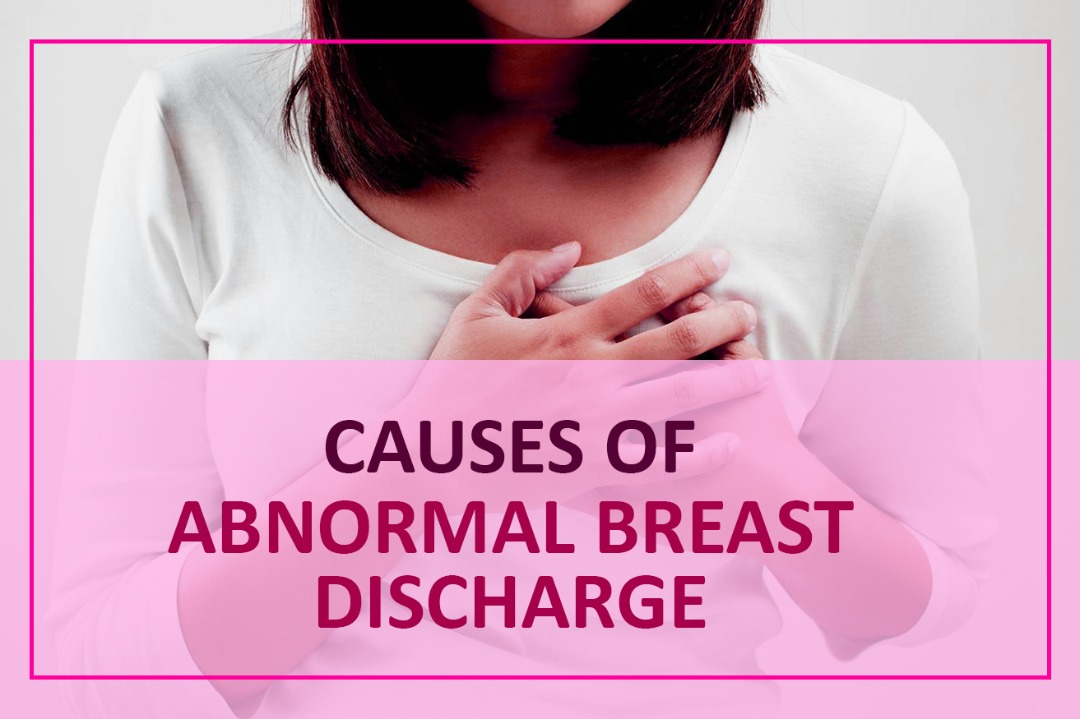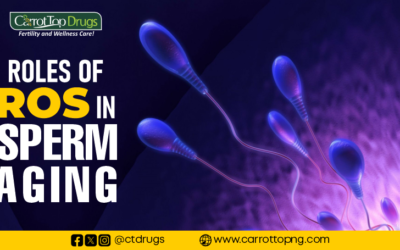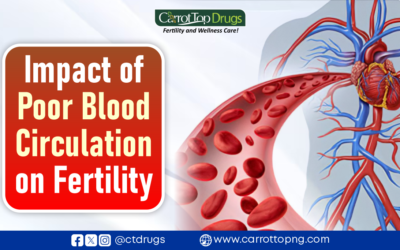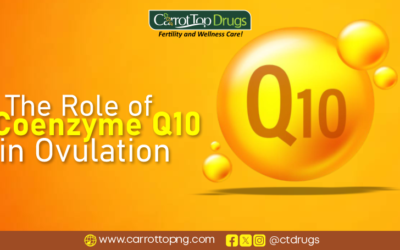Introduction
Intriguing and often alarming, abnormal breast discharge can raise numerous concerns among women. It’s imperative to delve into the various causes behind this occurrence to alleviate fears and provide appropriate guidance. In this comprehensive guide, we will explore the myriad reasons why abnormal breast discharge may happen and how to address them effectively.
What is Abnormal Breast Discharge?
Abnormal breast discharge refers to any secretion from the nipple that deviates from the norm. While some discharge can be normal, such as during pregnancy or breastfeeding, certain types of discharge may indicate underlying health issues.
Normal vs. Abnormal Breast Discharge
Normal discharge is typically clear or milky and may occur during pregnancy or breastfeeding. Abnormal discharge, on the other hand, can vary in color, consistency, and odor, signaling potential problems that require medical attention.
Features of Abnormal Breast Discharge
Abnormal breast discharge can vary widely in appearance and characteristics. Here are the key features to look out for:
- Color: Discharge can be clear, milky, yellow, green, brown, or bloody.
- Consistency: It may range from thin and watery to thick and sticky.
- Frequency: Persistent or recurrent discharge is more concerning than a one-time occurrence.
- Spontaneity: Discharge that occurs without squeezing or stimulation is often more alarming.
- Associated Symptoms: Accompanying symptoms such as pain, swelling, redness, or a lump in the breast or underarm area can indicate a more serious condition.
Statistics on Women with Abnormal Breast Discharge
According to various studies, abnormal breast discharge affects approximately 3-5% of women. Among these cases, around 7-10% may be associated with breast cancer, highlighting the importance of thorough evaluation for any unusual symptoms.
Causes of Abnormal Breast Discharge
Certain Medications
Some medications can lead to abnormal breast discharge by altering hormonal balances. Here’s a closer look at how specific medications contribute to this issue:
Antidepressants
Antidepressants, particularly selective serotonin reuptake inhibitors (SSRIs), can increase the levels of the hormone prolactin. Elevated prolactin can lead to galactorrhea, a condition characterized by the spontaneous flow of milk from the breast, not associated with childbirth or nursing. Common SSRIs include fluoxetine (Prozac), sertraline (Zoloft), and citalopram (Celexa).
Antipsychotics
Antipsychotics, especially the older class known as typical antipsychotics, can also raise prolactin levels significantly. Drugs such as haloperidol (Haldol) and chlorpromazine (Thorazine) are known to have this side effect. Even some atypical antipsychotics like risperidone (Risperdal) can cause elevated prolactin. This increase in prolactin can disrupt normal breast function and lead to discharge.
Birth Control Pills
Hormonal contraceptives, including combined oral contraceptives (which contain both estrogen and progestin), can cause changes in breast tissue. These changes can sometimes result in nipple discharge. The hormonal fluctuations induced by these contraceptives can mimic those seen in pregnancy, leading to breast tissue sensitivity and secretion. Patients experiencing this side effect might consider discussing non-hormonal contraceptive methods or alternative hormonal formulations with their doctor.
Hypothyroidism
Hypothyroidism, or an underactive thyroid gland, can significantly impact the body’s hormonal balance. The thyroid gland produces hormones that regulate metabolism, and when it is underactive, it fails to produce adequate amounts of these hormones. This can result in a cascade of effects throughout the body, including elevated levels of prolactin, a hormone produced by the pituitary gland. Elevated prolactin levels can lead to spontaneous nipple discharge, a condition known as galactorrhea.
In addition to nipple discharge, hypothyroidism presents a variety of symptoms that can affect overall well-being. These include persistent fatigue, unexplained weight gain, sensitivity to cold, dry skin, hair loss, constipation, and depression. It’s essential for individuals experiencing these symptoms, along with abnormal breast discharge, to seek medical evaluation. Treatment typically involves thyroid hormone replacement therapy, which can help normalize hormone levels and alleviate symptoms, including nipple discharge.
Tumors
Tumors within the breast, whether benign or malignant, can also be a cause of abnormal breast discharge. Understanding the nature of these tumors is crucial for appropriate management:
Intraductal Papilloma
An intraductal papilloma is a benign tumor that forms within the milk ducts of the breast. This small, wart-like growth can cause nipple discharge, which is often bloody or clear. Intraductal papillomas are usually found in women aged 35 to 55 and are typically non-cancerous. However, because they can cause symptoms similar to those of breast cancer, a thorough diagnostic evaluation, including imaging and possibly a biopsy, is necessary to rule out malignancy.
Ductal Carcinoma In Situ (DCIS)
Ductal carcinoma in situ (DCIS) is a non-invasive form of breast cancer that originates in the milk ducts. While DCIS does not spread beyond the ducts, it can still cause nipple discharge. The discharge in DCIS cases can vary in color and consistency. Early detection and treatment of DCIS are crucial to prevent progression to invasive breast cancer. Treatment options may include surgery, radiation therapy, and, in some cases, hormone therapy to reduce the risk of recurrence.
Nerve Damage
Nerve damage affecting the breast can lead to abnormal breast discharge by disrupting the normal signaling pathways. This damage can occur due to various reasons:
- Surgical Procedures: Breast surgeries, including biopsies, lumpectomies, and mastectomies, can sometimes damage nerves, leading to altered sensation and discharge.
- Trauma: Physical injury to the breast, such as a blow or accident, can damage the nerves and result in discharge.
- Medical Conditions: Conditions like diabetes, which can cause peripheral neuropathy, may also affect the nerves supplying the breast.
- Nerve damage-related discharge is often accompanied by other symptoms, such as pain or changes in breast sensation. Addressing the underlying cause of nerve damage and providing symptomatic relief are key components of treatment.
Chronic Kidney Disease
Chronic kidney disease (CKD) affects the body’s ability to filter waste and balance hormones effectively. One of the hormonal imbalances that can result from CKD is an elevation in prolactin levels, similar to the effect seen in hypothyroidism. Elevated prolactin can lead to spontaneous nipple discharge.
CKD progresses through various stages, and as kidney function declines, the risk of hormonal imbalances increases. Other symptoms of CKD include fatigue, swelling (edema), changes in urination patterns, and high blood pressure. Managing CKD involves addressing the underlying cause, controlling symptoms, and maintaining kidney function as much as possible. Hormonal therapies may be used to manage prolactin levels and reduce nipple discharge.
Mastitis
Mastitis commonly affects breastfeeding women but can also occur in non-lactating women. It typically presents with localized pain, swelling, and redness, along with systemic symptoms like fever and chills. Prompt treatment with antibiotics is essential to resolve the infection and prevent complications.
Breast Abscess
A breast abscess is a more severe form of infection where a pocket of pus forms within the breast. This condition requires drainage, either through needle aspiration or surgical intervention, in addition to antibiotic therapy. Early treatment is crucial to prevent the spread of infection and additional complications.
Hyperprolactinemia
Hyperprolactinemia is a condition characterized by elevated levels of prolactin, often due to pituitary gland disorders such as prolactinomas (benign tumors of the pituitary gland). High prolactin levels can lead to galactorrhea, causing spontaneous milk production and nipple discharge.
Symptoms of hyperprolactinemia can extend beyond breast discharge and include:
- menstrual irregularities,
- infertility, and
- sexual dysfunction.
Fibrocystic Breast Changes
Fibrocystic breast changes are common and benign. They refer to the development of fibrous tissue and cysts within the breast, often leading to lumpiness, tenderness, and sometimes discharge. This condition typically affects women between the ages of 30 and 50 and can vary with the menstrual cycle, becoming more pronounced before menstruation. The discharge associated with fibrocystic changes is usually non-bloody and may be clear or greenish. Though benign, these changes can mimic symptoms of more serious conditions, so medical evaluation is recommended to rule out malignancy.
Pregnancy and Lactation
During pregnancy and lactation, significant hormonal changes prepare the breasts for milk production. This process can sometimes lead to nipple discharge even outside of active breastfeeding periods. Hormones such as prolactin and oxytocin play a key role in milk production and ejection, and their levels can fluctuate, causing spontaneous discharge. This is generally normal, but if the discharge is bloody, persistent, or associated with other symptoms, it is advisable to seek medical advice to exclude other causes.
Breast Cancer
While less common, breast cancer is a serious cause of abnormal breast discharge that requires immediate medical attention. Discharge associated with breast cancer is often bloody or clear and may be accompanied by other symptoms such as a palpable lump, skin changes, or nipple retraction. Types of breast cancer that can cause discharge include:
- Invasive Ductal Carcinoma (IDC): The most common type of breast cancer, originating in the milk ducts and invading surrounding tissue.
- Paget’s Disease of the Nipple: A rare form of breast cancer that starts in the ducts and spreads to the nipple and areola, often causing discharge, itching, and scaling.
Complications of Abnormal Breast Discharge
Abnormal breast discharge, while often benign, can lead to several serious complications if not properly addressed. Understanding these potential complications can highlight the importance of seeking timely medical evaluation and treatment.
Infection Spread
One of the primary concerns with untreated abnormal breast discharge, particularly when caused by infections, is the potential for the infection to spread. If an infection like mastitis is not promptly treated, bacteria can spread to surrounding breast tissue and potentially enter the bloodstream, leading to a systemic infection known as sepsis. Sepsis is a life-threatening condition that requires immediate medical intervention. Early treatment of breast infections with antibiotics can prevent the spread of infection and mitigate the risk of sepsis.
Breast Abscess
Severe infections in the breast can lead to the formation of abscesses, which are localized collections of pus. Breast abscesses are painful and typically present with a swollen, red, and tender area on the breast. The pus-filled cavity requires drainage, either through needle aspiration or surgical intervention. In addition to drainage, antibiotic therapy is essential to treat the underlying infection. Without proper treatment, abscesses can recur or cause chronic pain and discomfort.
Underlying Cancer
Delayed diagnosis and treatment of breast cancer can have serious implications for patient outcomes. If abnormal breast discharge is a symptom of an underlying malignancy such as ductal carcinoma in situ (DCIS) or invasive ductal carcinoma (IDC), any delay in diagnosis can allow the cancer to progress. Early-stage cancers that might be treatable with surgery or localized therapies can become more advanced, requiring more extensive treatment and potentially reducing the chances of successful outcomes. Regular breast exams, imaging studies, and prompt evaluation of any suspicious symptoms are crucial for early detection and treatment.
Chronic Pain and Discomfort
Persistent abnormal breast discharge, regardless of the underlying cause, can lead to chronic pain and discomfort. Conditions like fibrocystic breast changes can cause recurring breast pain and tenderness, impacting quality of life. Ongoing discharge can also cause irritation and skin breakdown around the nipple, leading to additional discomfort and the risk of secondary infections. Addressing the underlying cause and managing symptoms with appropriate medical treatment can alleviate pain and improve overall well-being.
Possible Solutions to Abnormal Breast Discharge
Addressing abnormal breast discharge requires a multi-faceted approach tailored to the specific underlying cause. Here are various strategies that can be employed to manage and resolve this issue:
Medical Evaluation
The first and most crucial step in addressing abnormal breast discharge is seeking a thorough medical evaluation. A healthcare provider will conduct a detailed history and physical examination, possibly supplemented by diagnostic tests such as mammograms, ultrasounds, or MRI scans. Blood tests to check hormone levels might also be necessary. Accurate diagnosis is essential for determining the appropriate treatment plan.
Medication Adjustments
If abnormal breast discharge is linked to the use of certain medications, adjusting or switching these medications may resolve the issue. For instance:
- Antidepressants and Antipsychotics: These can elevate prolactin levels, causing discharge. Discussing alternatives with your doctor may help find a medication that does not cause this side effect.
- Birth Control Pills: Hormonal contraceptives can lead to breast discharge. Switching to a different type of contraception or adjusting the hormonal dosage might mitigate the symptoms.
Treating Infections
Infections such as mastitis or breast abscesses require prompt treatment to prevent complications. The primary treatments include:
- Antibiotics: For bacterial infections, antibiotics are prescribed to eliminate the infection. It’s important to complete the entire course of antibiotics even if symptoms improve early.
- Antifungal Treatments: In cases where fungal infections are the cause, antifungal medications can be effective.
Alongside medication, maintaining good breast hygiene and applying warm compresses can help alleviate symptoms and promote healing.
Hormonal Therapy
Hormonal imbalances, such as those caused by hypothyroidism or hyperprolactinemia, can lead to abnormal breast discharge. It aims to balance these levels and reduce symptoms:
- Thyroid Hormone Replacement: For hypothyroidism, taking thyroid hormone replacement medications can normalize hormone levels and reduce discharge.
- Dopamine Agonists: For hyperprolactinemia, medications such as bromocriptine or cabergoline can lower prolactin levels, alleviating symptoms.
- Supplement: Evergreen Formular for Women can help in regulating prolactin.
Surgery
In certain cases, surgical intervention may be necessary to address the underlying cause of abnormal breast discharge:
- Tumors: Both benign and malignant tumors may require surgical removal. Procedures such as lumpectomy (removal of the tumor and some surrounding tissue) or mastectomy (removal of one or both breasts) might be recommended depending on the severity and type of tumor.
- Severe Infections: In cases of breast abscesses that do not respond to antibiotics alone, surgical drainage may be required to remove the pus and infected tissue.
Regular Monitoring
For benign conditions, such as fibrocystic breast changes, regular monitoring is essential to ensure that the condition does not progress or develop complications. This involves:
- Routine Check-ups: Regular visits to your healthcare provider for breast exams can help detect any changes early.
- Self-Exams: Performing regular breast self-examinations can help you become familiar with the normal feel of your breasts and notice any changes promptly.
- Imaging Studies: Periodic mammograms or ultrasounds may be recommended to monitor any changes in breast tissue.
Conclusion
Abnormal breast discharge can be alarming, but understanding its potential causes is the first step towards effective management and peace of mind. By recognizing the various factors that may contribute to abnormal discharge and seeking timely medical evaluation, individuals can take control of their breast health and address any underlying issues proactively.
FAQs (Frequently Asked Questions)
- Is abnormal breast discharge always a sign of breast cancer?
- While abnormal breast discharge can indicate breast cancer in some cases, it is not always the cause. Many benign conditions can also lead to abnormal discharge. However, any persistent or concerning symptoms should be evaluated by a healthcare professional.
- Can hormonal imbalances cause abnormal breast discharge?
- Yes, hormonal imbalances, such as those associated with conditions like hyperprolactinemia or thyroid disorders, can disrupt normal breast function and lead to abnormal discharge.
- How can I differentiate between normal and abnormal breast discharge?
- Normal breast discharge is typically clear or milky and may occur during pregnancy or breastfeeding. Abnormal discharge may vary in color, consistency, or odor and may occur spontaneously outside of these circumstances.
- What should I do if I notice abnormal breast discharge?
- If you experience abnormal breast discharge, it is essential to seek medical evaluation promptly. A healthcare provider can perform a comprehensive assessment to determine the underlying cause and recommend appropriate treatment.
- Can medications cause abnormal breast discharge?
- Yes, certain medications, including birth control pills, antidepressants, or antipsychotics, can interfere with hormone levels and lead to abnormal breast discharge as a side effect.

















